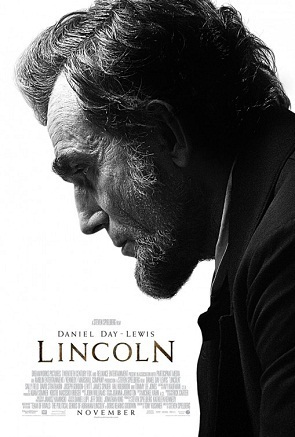The REAL Leadership Lesson for Obama from Abraham Lincoln
If President Barack Obama, or anyone else for that matter, wants to learn Lincoln’s leadership skills, he’ll need to do more than watch the two and a half hour Spielberg movie, Lincoln. Abraham Lincoln’s most enduring leadership skills were transformational—the ability to inspire—rather than transactional—the ability to trade. Spielberg’s movie primarily highlights Lincoln’s transactional skills, so the Hollywood pundits and political bloggers, armed with their new-found expertise on Lincoln, tell Obama that Lincoln’s message on leadership involves simply “procuring votes” or “making it happen.” They pick their favorite topic—such as environmental legislation—and tell Obama to ignore the protests of congress and force things through.
But historians that have studied Lincoln know that the presidential leadership style displayed in Spielberg’s brilliant movie was only one of the leadership methods employed by the 16th president. It was rare that Lincoln simply used his “horse trading” skills and his “immense power” as president to lead. If his leadership skills had been as one dimensional as that, he would have failed to either free the slaves or keep the Union together. Today we would not be the “united” states.
As can be seen from this previously published article on his transformational leadership skills, Lincoln used more than one management style during his years in the White House. It is true that Lincoln frequently used “transactional” leadership, where the leader “procures” a follower’s support (as he did with several holdout Democrats in the movie). But Lincoln’s true genius was his use of “transformational” leadership to change the hearts and minds of millions.
Transformational leadership motivates followers by activating their “higher order” needs—such as their sense of justice and equanimity. Followers are challenged to look beyond how they can personally benefit, and to make personal sacrifices in order to do something for the greater good of society. As can be seen in this article on the comparison of Lincoln’s leadership skills to Jefferson Davis’s, Lincoln’s use of transformational leadership is what inspired many, including millions of Union soldiers, to be willing to risk their lives to (first) preserve the Union, and (second) to free the slaves.
A brief glimpse of Lincoln’s transformational leadership skill is shown in the movie, when he talks to Congressman George H. Yeaman of Kentucky about supporting the Thirteenth Amendment to free the slaves. Lincoln does not offer anything that would personally benefit the congressman, but instead appeals to his sense of justice. Lincoln tells Yeaman why he had always believed slavery was a moral wrong, and asks the congressman to “disenthrall” himself with the slave powers to support the passage of the amendment. He ends his plea to the congressman with a simple request to “see what you can do.” Later, in one of the most emotional scenes of the movie, the congressman—who had formerly been the Democratic Party’s floor leader in the opposition to the Thirteenth Amendment—changes his mind and votes in its favor.
The final scene of Spielberg’s’ movie shows Lincoln the transformational leader at his pinnacle—presenting the concluding lines of his second inaugural address: “With malice toward none, with charity for all …” This was Lincoln’s final plea to the war-ravaged nation to “seek a lasting peace” with all nations and “to care for him who shall have born the battle” on both sides. This speech, along with the Gettysburg Address, is the hallmark of Lincoln’s leadership.
So the Lincoln leadership message to Obama is not simply one of partisan politics, or buying votes, or getting your political party’s way on a particular act of legislation. It involves, instead, looking into the future towards “the millions yet unborn,” and pursuing their greater good. It is true that there will always be people that are only motivated by personal benefit, or party politics, or opinion polls. But Abraham Lincoln is remembered for how he inspired millions of followers to go beyond their own self-interest and make sacrifices for the benefit of mankind, not on how good he looked in the morning newspapers.



